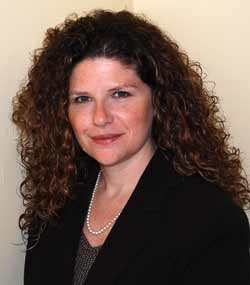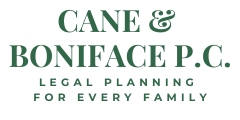It’s Summer 2020.
We hope you and your loved ones are keeping well through this difficult time, physically and emotionally. We know some of you have been directly affected by the virus and all of us at Cane & Boniface are keeping you in our thoughts and prayers.
Although we are not all physically in the office every day, we are checking messages and the mail daily and are still working hard from our homes to assist you. Please reach out if you need anything and we will do our best to assist you. We have a wide network of colleagues and contacts available to point you in the right direction if it is not something that we can help you with directly.
As we head into summer, and hopefully more stable times, here are some ideas we hope will help now and through the remainder of the year.
Putting Your Affairs in Order
Like many people, you may want to “do this yesterday”. Technology and temporary executive orders have given us new tools to accomplish a lot virtually and over the telephone.
If you have an urgent situation, we may be able to accommodate you. But remember, what is “authorized” is not always “feasible”. We will do our best to work out what is possible for your situation.
Plan to Plan
If you already have a will, trust, advance health care directives, and powers of attorney, review them.
- Are the beneficiaries still the same?
- Are the people you named as your executors, trustees, guardians and powers of attorney still appropriate?
- Are the agents you selected to make health care decisions if you cannot make them for yourself the right ones for you now?
- Do you need to make changes?
If you do not have documents, think about what you want to accomplish. Make notes of your concerns and goals.
Call or email us to make an appointment. We can determine how to best meet, whether it be in person (if feasible), by telephone, or by video conference.
Do some homework for a better plan
♦ Make a list of all your assets—bank accounts, investment accounts, real estate, retirement funds, insurance, copyrights, art, vehicles—everything! Write down how assets are titled, account numbers, passwords and contact information. It is essential to good planning and will eventually help your heirs settle your estate in the future.
♦ What keeps your daily life going? Make a list of utilities, insurance, mortgages, rent, cable & internet providers, newspaper deliveries, cell phone contracts, service providers, credit cards, social media & email accounts, etc. Include contact information, account numbers, passwords. Make sure someone you trust knows where you keep this information so he/she can step in if you are out of commission.
♦ Go electronic. Put as much as possible on automatic payments. Enable electronic banking. Use one credit card for recurring “housekeeping” payments and keep it at home. Use a different card for purchases “on the street”. If the “outside” card gets compromised, it is easier to fix the problem. Learn how to deposit checks on your phone so you can save a trip to the bank.
♦ Check the beneficiary designations on your life insurance policies, annuities, retirement accounts, employment death benefits, bank accounts, etc. These override whatever your will or revocable trust say. Look online, speak to your financial advisor or call your human resources department. If you find someone inappropriate listed (like an ex-spouse), fix it fast!
♦ If you never moved assets into your revocable living trust (funded the trust), now is the time. Revocable living trusts have proven their power during this time when courts have been closed and estates have been frozen while waiting for an executor to be appointed.
Trustees, on the other hand, have been able to settle estates almost seamlessly because they do not need court approval. Please see the enclosed article about revocable living trusts.
♦ Update the contact information for yourself, your beneficiaries, executors, health care decision makers and anyone else who plays an important role in your plan. Please send us a copy for our file.
Check the status of your IRA
♦ Under the Coronavirus Aid, Relief and Economic Security Act (CARES Act) of March 27, 2020, you may not have to take a Required Minimum Distribution (“RMD”) this year. Qualified Charitable Distributions (“QDCs”) are still permitted but may not be as advantageous as last year or next year. As usual, there are many technicalities to consider, so talk to your accountant and retirement plan administrator before you act.
Watch out for fraud
♦ Whether it is an urgent “rescue me” call, fishing expeditions from bogus “government” agencies, offers for miracle COVID-19 cures, if it is too good to be true…think and verify before you act.
Do a Health Care Proxy now if you have not signed one yet; list your medical information
♦ If you did a health care proxy, but cannot find it, ask for a copy from the attorney or the hospital where you signed it.
- Are your agents (the people who would act if you can’t) still able to act?
- Would you still want them to act on your behalf? If not, start over.
- If you instructed “no intubation”, you may want to update your documents as intubation is often part of COVID-19 treatment.
♦ Make a complete list of your medical issues, health care providers, insurance, and medications. Share it with your health care agents or let them know where they can find the information.
Update the Emergency Contacts on your telephone. Talk to your alternate decision makers about your wishes in case your primary agent is unable to act.
Give directions for dealing with your last remains
♦ If you died last month, options were limited to cremation or an abbreviated grave side funeral, perhaps augmented by a virtual gathering, with a memorial to follow when it is safe. Tell your family what you want; give details (including the burial plot location) so they can do their best to carry out your wishes. Write it out now and you can always formalize it later. Specify where you want donations to go in lieu of flowers.
Give something away
♦ Many people are out of work and hungry; challenges are rampant. If you can, give now when so many need it. If you have a Donor Advised Fund, now may be a good time to use it to maximize your capacity to give.
♦ Give to your family and friends.
- You can give $15,000 to any individual and file no gift tax return.
- Pay 3rd party providers for educational or medical expenses.
- Start or add to a 529 Plan.
- Give depressed securities at a “discount”.
Reach out
♦ Whether the cause of death was COVID-19 or something else, it is a lonely time to mourn. Make a call or write a note. The elderly are more alone and scared than ever. Get in touch with someone you have not spoken to in a long time—a schoolmate, a neighbor, a distant cousin. Write to a sibling, a grandchild, a former mentor, or a friend and share memories and tell them how much they mean to you.
Find the silver lining to the present situation by keeping in touch with loved ones, especially those you have not seen or spoken to in a while.
We look forward to seeing you all in person soon. Until then, know that we are here for you via phone, e-mail and virtual meetings. Please do not hesitate to reach out to us if we can help you in any way.
Stay well and safe,
Barbara H. Cane, Of Counsel
Courtney E. Boniface
Stephanie A. Zacharias

Courtney E. Boniface, Attorney at Law at Cane & Boniface P.C., is admitted to practice in New York, New Jersey, and Connecticut. She helps individuals and families in the New York tri-state area efficiently plan and settle their estates.
This information is intended for informational purposes only and does not constitute legal or tax advice and does not constitute an attorney-client relationship. This is not intended to be used by any taxpayer for the purpose of evading taxes or penalties. Consult competent advisors regarding your specific situation and goals. Go to www.caneboniface.com for more ideas.
© 2023, Cane & Boniface P.C. This is attorney advertising.


 18 Myths of Estate Planning
18 Myths of Estate Planning